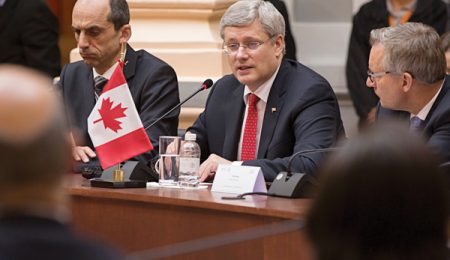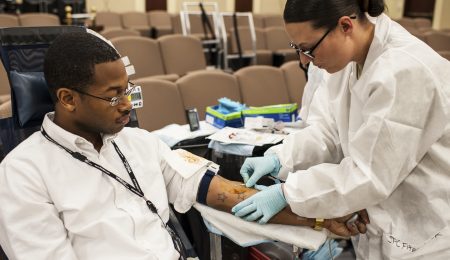Students organize petition to bring back committee
DURING THE SEPT. 18 Board of Administration (BOA) meeting, a motion to remove the Student Arbitration Committee (SAC) was put forward after determining the committee was undemocratic. The motion carried 29 to one. Brendon Andrews, BOA representative for the Faculty of Social Sciences who voted against the motion, is now supporting a petition to bring the committee back, alongside Hazel Gashoka, the interim chief arbitrator of the SAC.
“Shortly after the meeting, we just got together and decided to talk about how to deal with this issue,” said Andrews. “Basically, the only way to counter that move is to run a petition that shows what students actually feel about the situation.”
The SAC served as an unbiased party, interpreting and reviewing the laws that govern the board and the executive, as well as launching investigations and implementing sanctions when necessary. It was made up of nine students hired by the Student Federation of the University of Ottawa (SFUO) and BOA.
Although the SAC will not be officially dissolved until the motion goes through a second reading at the next BOA meeting, Gashoka and Andrews are not optimistic about the committee’s fate.
“There is no doubt in my mind that the board will try to push that motion through,” said Gashoka.
She and Andrews have already begun the distribution of a petition to bring the SAC back, hoping to get at least 1,500 signatures before the next meeting on Oct. 16.
“I want to have a call for a referendum, and in order to do that, according to the SFUO constitution, we need about 1,500 signatures,” said Gashoka.
“That’s what I’m attempting to do right now—to collect as many signatures as possible and have a referendum called so students can decide if the Student Arbitration Committee should be dissolved or if it should remain as an initial branch of the federation.”
The BOA motion to remove the SAC was put forward by Sarah Jayne King, the vp finance of the SFUO. The Constitutional Committee, the proposed replacement for the SAC, would be made up of five SFUO directors chosen by the BOA and two alternate members from the BOA in the case of a conflict of interest.
“The Student Arbitration Committee is something over the past three years we haven’t seen properly filled,” said King in an interview with the Fulcrum after the Sept. 18 BOA meeting. “SAC is an undemocratic body that is not actually accountable to the SFUO in any legal sense and can literally overturn the elections or a referendum process with two people.”
“What this motion has done is removed the SAC and put in place a Constitutional Committee as a standing committee that would take on many of the same powers, but be a committee of the board.”
Gashoka and Andrews both believe the SAC is necessary and should remain intact.
“Just because it hasn’t been used in the past few years by the SFUO doesn’t mean it’s not a useful tool,” said Andrews. “It just means the SFUO hasn’t been doing their job.”
“The SFUO cannot be the judge of whether the SFUO is at fault in a case,” he added.
“I think it’s important because members of the SAC are outside student politics,” said Gashoka, adding she’s worried about possible bias of the Constitutional Committee when dealing with SFUO and BOA issues.
Gashoka distributed the petition, explaining to students what it’s about and why she thinks it’s important. Gashoka said many times, after the explanation, students were swayed to sign.
“I am getting a lot of support on campus from students. A lot of students don’t know what’s happening, so a lot of decisions were made behind closed doors between the BOA and the SFUO,” said Gashoka. “Once I explain myself to students, they tend to favour keeping the SAC.”
Once the signatures are collected, Gashoka will present them to the BOA. Two-thirds of the members will have to vote in favour of approving the petition in order for a referendum to be called.
“I’m pretty optimistic that we’ll get the signatures,” said Gashoka. “However, when it comes to whether two-thirds of the BOA are going to support 1,500 [students], I don’t really know how that’s going to work. I don’t have a lot of faith in this system.”
The SFUO executive was not available to comment at the time of publication.
—Jane Lytvynenko




